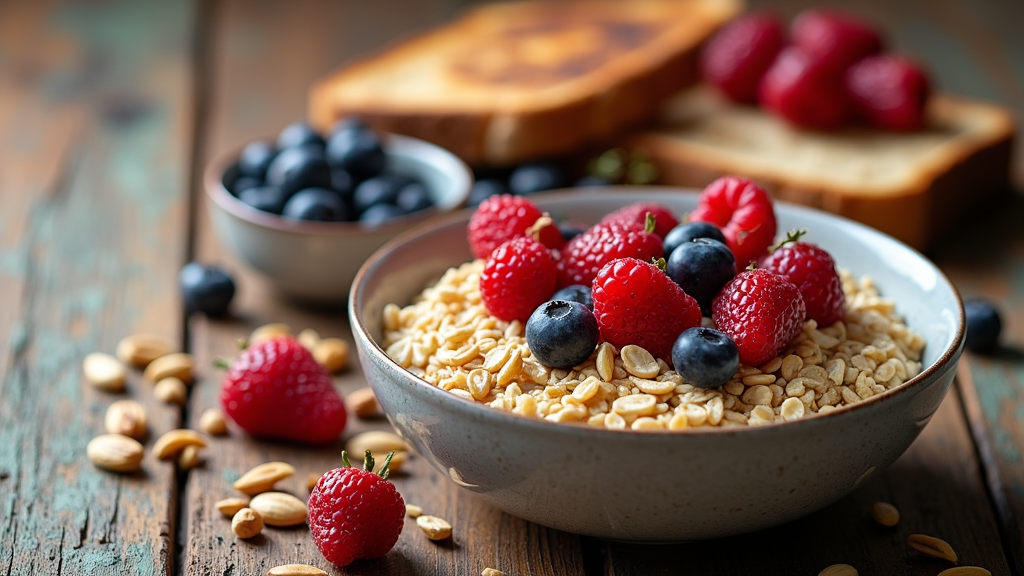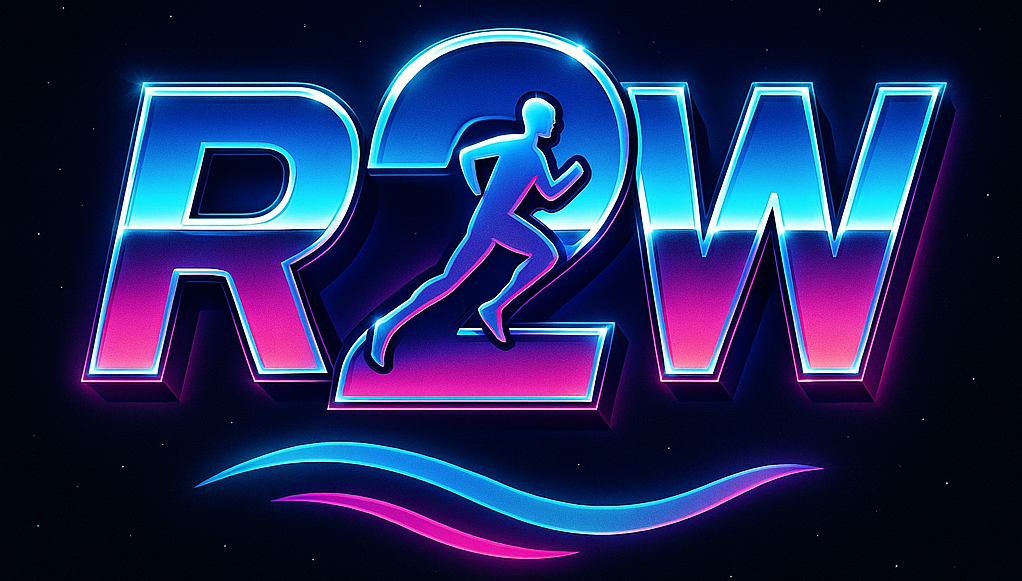
Fueling your runs goes beyond just supplying energy to your muscles. In the race for peak performance, many runners might not realize that their mental health is also affected by their dietary choices. In this article, I check out how the right nutrition can step up mental well-being and support your running goals as well as your overall life balance. Running naturally boosts mood and focus by triggering endorphin and serotonin releases, while smart food selections can crank up these natural benefits and build mental resilience. Join me as we find your way through the intertwined paths of nutrition and mental health, one stride and one nourishing bite at a time.
1. Fueling Your Runs: Nutrition for Mental Clarity
Every runner knows that performance isn’t just about pounding the pavement; it’s about caring for both body and mind. Whether training for an event or simply going for a daily jog, the foods you choose play a vital role in your energy levels and cognitive sharpness. When you plan meals with physical and mental performance in mind, you set yourself up for success both on the track and off.
This approach considers nutrition as an integrated part of your training regimen. Think of each meal as an opportunity to fine-tune your body’s fuel supply, speed recovery, and improve mental clarity. Thoughtful dietary choices work like fuel and medicine, keeping your brain alert and your body ready for any challenge.
2. Prevalence of Mental Health Challenges in Athletes
Often overlooked in sports is the frequency of mental health challenges among athletes. Mental health shapes how we think, feel, and act, and disruptions can lead to conditions like anxiety and mood disorders. For many athletes, the characteristics that drive excellence—discipline, focus, and commitment—can also increase vulnerability. For example, studies indicate that among college athletes, roughly 33% experience significant mental health issues, yet only about 10% seek help. Elite athletes report similar struggles, sometimes as high as 35%. The pressure to perform, constant scrutiny, and fear of failure can make even the toughest competitors susceptible to mental challenges.
This reality underscores the importance of seeing nutrition not only as a source of physical energy but also as part of a support system for mental health. A proper diet can help offset stress by giving your brain essential nutrients that aid in mood regulation and cognitive function.
3. The Connection Between Diet and Mental Health
Nutritional psychiatry explores how dietary choices influence mental state. Evidence increasingly suggests that whole, unprocessed foods can reduce the risk of depression and boost overall mental well-being. Diets rich in fruits, vegetables, lean proteins, and whole grains support a diverse gut microbiome, which research links to better brain function. A healthy gut can significantly affect how the brain handles stress and processes emotions.
For instance, the SMILES trial demonstrated that a modified Mediterranean diet could help in the remission of depression symptoms. This study found that a step up in dietary quality directly correlated with improvements in mental health. Additionally, comparing costs revealed that healthy eating can be both affordable and advantageous. With sensible food choices, athletes can avoid issues associated with low energy availability and Relative Energy Deficiency in Sport, which can harm both mental and physical performance.
In essence, when you nourish your brain with the right foods, you support mood regulation, focus, and clear thinking, all fundamental for peak performance.
4. Balance is Key: Matching Calorie Intake to Running Demands
Just as a car needs the right fuel to run efficiently, your body requires the proper calorie intake to perform at its best. Matching what you eat with the energy you expend is critical for achieving both physical results and mental clarity. When under-fueled, you might experience reduced concentration, mood swings, and lower endurance.
Consider these practical tips for balancing your energy needs:
- Schedule meals around your training so your body gets the fuel it needs before, during, and after runs.
- Keep a simple log of your calorie intake relative to how intense and long your workouts are.
- Make small adjustments as you discover how your body responds to exercise loads.
When your calorie intake aligns with your running demands, you lay the foundation for a more stable mood and sustained energy throughout your day.
5. Mix in Some Variety: Building a Rich Gut Microbiome
The old saying “variety is the spice of life” applies as much to your diet as it does to any other part of your daily routine. A mix of whole foods offers a range of vitamins and minerals and supports a robust gut microbiome. Because of the gut-brain connection, what you feed your digestive system directly affects your mood and mental sharpness.
Adding variety to your meals can fortify your digestive system, which in turn supports your overall well-being. Here are a few suggestions for mixing things up:
- Fill your plate with colorful vegetables and fruits that supply antioxidants and natural compounds to ease inflammation.
- Include whole grains and legumes to ensure steady energy release.
- Try different protein sources from both plants and animals to keep meals interesting.
By incorporating a broad spectrum of nutrients in every meal, your gut reaps the benefits, and your mind stays focused and alert.
6. Boost Brain Power: Prioritize Omega-3 Fatty Acids
Omega-3 fatty acids, which appear in foods like fish, flaxseeds, walnuts, and chia seeds, are known for their brain-boosting benefits. These healthy fats support brain cell function and help reduce inflammation, contributing to better mood and sharper focus.
For runners looking to step up mental clarity, including omega-3–rich foods in your diet can be a game-changer. Try these simple suggestions:
- Add a serving of oily fish such as salmon or mackerel to your weekly menu.
- Sprinkle flaxseeds or chia seeds on your breakfast cereal or yogurt.
- Snack on a handful of walnuts or incorporate them into salads.
These small modifications can support cognitive function and help counter the stress induced by intense physical activity.
7. Balancing Macronutrients: Carbs, Proteins, and Fats for Energy and Clarity
A well-rounded mix of macronutrients is essential not only for long runs but also for busy days. Carbohydrates supply quick energy, proteins repair and rebuild muscle, and fats contribute to long-term energy and hormone balance. Getting the right combination of these fuel sources supports physical performance and ensures clear thinking and a stable mood.
Consider these points when balancing your meals:
- Carbohydrates: Choose whole grains, fruits, and vegetables to keep energy levels steady.
- Proteins: Lean meats, beans, and dairy help rebuild muscle and maintain body efficiency.
- Fats: Focus on healthy fats found in avocados, nuts, and olive oil, which support brain function.
This balanced approach to macronutrients fuels your runs and contributes to an even energy supply throughout the day.
8. Meal Timing: Fueling Before, During, and After Your Runs
Timing your meals can make a significant difference in both performance and recovery. A well-planned eating schedule can improve how you perform during workouts and how quickly you bounce back afterward. It’s all about syncing your food intake with your training schedule.
Consider these guidelines for proper meal timing:
- Before running: Consume a light, easily digestible snack with carbohydrates and a little protein about 30 to 60 minutes before your workout.
- During long runs: For extended sessions, opt for small, energy-rich snacks or sports drinks to maintain blood sugar levels.
- After running: Refuel with a balanced meal featuring proteins, carbohydrates, and healthy fats to aid recovery and support mental clarity.
Good meal timing reinforces the idea that food is a valuable tool in your training, working together with your physical efforts to keep your mind clear.
9. Hydration and Beyond: Smart Fueling Strategies
Staying hydrated might be one of the simplest yet most important nutritional habits for runners. Water is crucial for performance, but sometimes your body needs more. In many cases, replenishing electrolytes with sports drinks or natural options like coconut water can provide the additional support required for both energy and brain function.
Think of hydration as another form of nutrition. When well-hydrated, your body and mind work more efficiently. Here are a few tips:
- Always carry a water bottle during long runs.
- Check your hydration by monitoring the color of your urine—a light, pale color generally indicates good hydration.
- Incorporate natural electrolyte sources after intense sessions to restore balance.
This approach not only keeps you hydrated but also supplies the nutrients necessary for sustained mental clarity and overall performance.
10. Integrating Nutrition Into Your Daily Routine
A thoughtful eating schedule goes hand in hand with a structured training plan. Just as you organize your runs, planning your meals can simplify decision-making and reduce daily stress. Establishing a routine that incorporates meal prepping and careful food selection creates a solid foundation for long-term health.
Consider these strategies to seamlessly blend nutrition into your everyday life:
- Plan and prepare balanced meals ahead of time to avoid last-minute unhealthy choices.
- Maintain a simple food diary for a few weeks to observe how your eating habits affect your mood and energy.
- Balance occasional indulgences with nutrient-dense meals that keep you on track.
By setting up a routine that values both the timing and quality of your meals, you create a reliable framework that contributes to better mental clarity and overall performance.
Every stride you take can be supported by a thoughtful fusion of smart food choices and mindful eating practices. Nourish your body and mind with every bite, and both your runs and your everyday life will benefit from improved clarity and sustained energy. Which nutrition tip will you start with? Each step is a move toward a clearer mind and a more energetic run.

Run not to escape life, but so that life doesn’t escape you
Nutrition is a powerful tool in the pursuit of physical endurance and mental clarity.
Final Thoughts
Whether you’re facing a challenging uphill run or a long, steady course, smart dietary choices help you stay mentally resilient and physically energized. By recognizing the impact of mental health challenges in athletes and understanding the significant connection between diet and brain function, you equip yourself with the knowledge needed to fuel your runs more effectively.
When you maintain a balanced calorie intake, mix in a variety of nutrient-rich foods, and plan meals with care, you tap into the dual power of nutrition. These strategies not only give you the energy required for intense training sessions but also support cognitive function and mood stability throughout your day.

